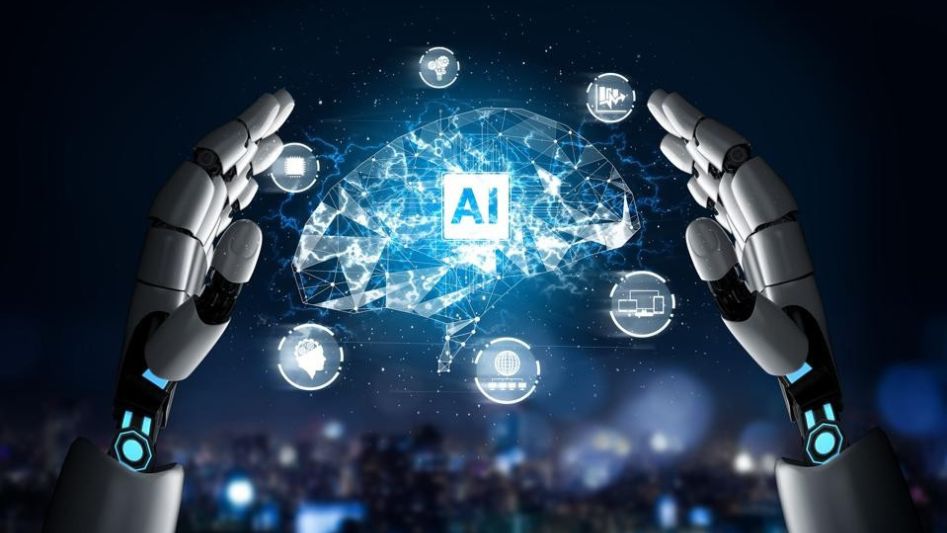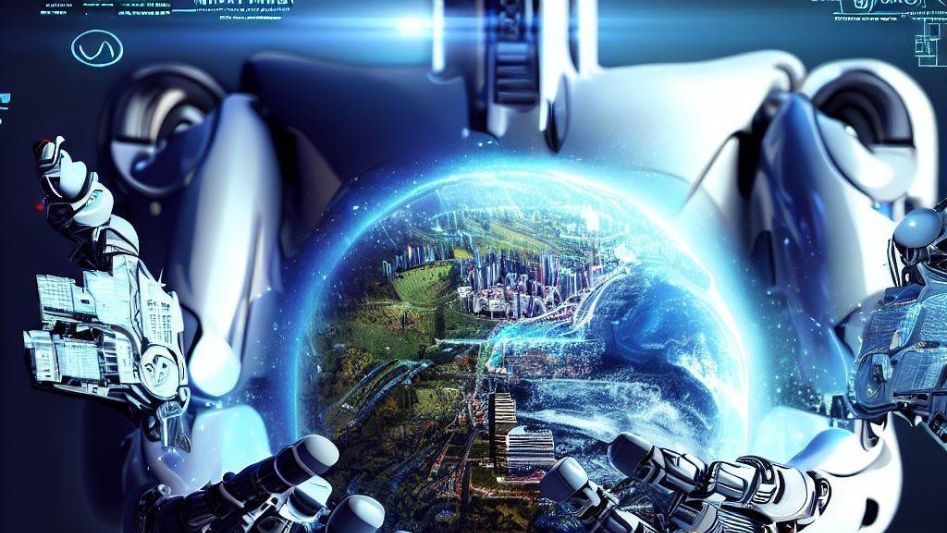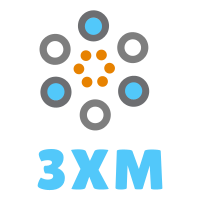Artificial Intelligence (AI) has come a long way since its inception, and it continues to evolve at an unprecedented pace. As we enter a new decade, the future of AI holds immense promise and potential. In this article, we will explore what we can expect from AI in the next ten years, covering various aspects of its development and impact on society.
Table of Contents:
We invite you to read: “MACHINE LEARNING VS. ARTIFICIAL INTELLIGENCE: WHAT’S THE DIFFERENCE?”

1. Advancements in Deep Learning
Deep learning, a subset of AI, has been a driving force behind many recent breakthroughs. In the coming decade, we can expect further advancements in this field. The development of more sophisticated neural network architectures, improved training techniques, and larger datasets will lead to AI systems that are even more capable of understanding and processing complex information.
2. AI-Powered Healthcare
AI is poised to revolutionize the healthcare industry. In the next decade, we can anticipate AI-driven diagnostics, drug discovery, and treatment recommendations becoming commonplace. Personalized medicine, where treatment plans are tailored to an individual’s genetic makeup, will become a reality, improving patient outcomes and reducing healthcare costs.
3. AI in Education
AI will play a significant role in reshaping education. Intelligent tutoring systems, adaptive learning platforms, and automated grading will help educators provide personalized instruction to students. AI can also facilitate lifelong learning by recommending relevant courses and resources based on individual interests and career goals.
4. AI and Autonomous Vehicles
The automotive industry is undergoing a major transformation with the advent of autonomous vehicles. In the next decade, we can expect self-driving cars to become increasingly common, revolutionizing transportation and reducing accidents caused by human error. AI will be at the heart of these autonomous systems, enabling them to navigate complex road conditions safely.
5. AI Ethics and Regulations
As AI becomes more integrated into society, ethical concerns will continue to grow. We can anticipate the development of stricter regulations and guidelines to ensure the responsible use of AI. Transparency, accountability, and fairness in AI algorithms will be paramount to address bias and discrimination issues.
We invite you to read: “DEMYSTIFYING AI: A BEGINNER’S GUIDE TO ARTIFICIAL INTELLIGENCE”

6. AI in Business
AI will continue to transform the business landscape. Organizations will rely on AI for data-driven decision-making, customer service automation, and supply chain optimization. AI-powered chatbots and virtual assistants will become more sophisticated, enhancing customer experiences and improving operational efficiency.
7. Natural Language Processing (NLP) Advancements
NLP, a branch of AI, will witness significant advancements in the next decade. We can expect AI systems to have a better understanding of human languages, enabling more accurate language translation, content generation, and sentiment analysis. Conversational AI will become increasingly indistinguishable from human interactions.
8. AI in Environmental Conservation
AI will also play a crucial role in addressing environmental challenges. Predictive models powered by AI will help monitor climate change, track wildlife populations, and optimize energy consumption. AI-driven solutions will contribute to more sustainable practices across various industries.
9. AI and Creativity
AI’s ability to generate art, music, and literature will continue to improve. While AI-generated content may raise questions about originality and authenticity, it will also provide new avenues for creativity and collaboration between humans and machines.
10. AI and Employment
The impact of AI on the job market will be a topic of ongoing discussion. While AI will automate certain tasks, it will also create new opportunities. The next decade will see the need for a workforce skilled in AI-related fields, including AI ethics, development, and maintenance.
We invite you to read: “THE ROLE OF ARTIFICIAL INTELLIGENCE IN MODERN SOFTWARE SOLUTIONS”

Conclusion
The next decade promises a profound transformation in various aspects of our lives due to the continued advancement of AI. While the potential benefits are immense, it is crucial to address ethical and regulatory challenges to ensure that AI technology is harnessed for the greater good of society. The future of AI is bright, and it is up to us to navigate it responsibly and with foresight.
FAQs
How is AI used in everyday life?
AI is used in various applications, including voice assistants (like Siri), recommendation systems (e.g., Netflix recommendations), autonomous vehicles, and healthcare diagnostics.
What is the future of AI?
The future of AI holds advancements in deep learning, healthcare, education, autonomous vehicles, and ethical considerations. It will continue to shape industries and our daily lives.
Are there ethical concerns about AI?
Yes, ethical concerns include bias in algorithms, privacy issues, and job displacement. Stricter regulations and ethical guidelines are being developed to address these concerns.
How can I prepare for AI’s impact on the job market?
To prepare for AI’s impact, consider gaining skills in AI-related fields like data science, machine learning, and AI ethics. Lifelong learning and adaptability will be essential.
You May Also Like
- ARTIFICIAL INTELLIGENCE: FRIEND OR FOE?
- ARTIFICIAL INTELLIGENCE IN CUSTOMER SERVICE: ENHANCING SUPPORT AND ENGAGEMENT
- MACHINE LEARNING VS. ARTIFICIAL INTELLIGENCE: UNDERSTANDING THE DIFFERENCE
- THE ROLE OF ARTIFICIAL INTELLIGENCE IN IOT: UNLEASHING INTELLIGENT AUTOMATION
- AI AND YOU: EXPLORING THE IMPACT OF ARTIFICIAL INTELLIGENCE ON EVERYDAY LIFE
HELPFUL LINKS
- Future of AI: What to Expect in the Next Decade
- What is the Future of AI? [Expert Predictions]
- Future of AI (Artificial Intelligence): What Lies Ahead?
- Artificial intelligence (AI) market size worldwide in 2021 with a forecast until 2030
- Will artificial intelligence be completed in 10 years? What do you think?


Recent Comments